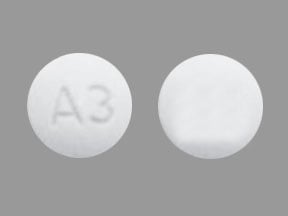
Dexmethylphenidate Coupons & Savings Card – Discount Prices from $21.18
Generic for: Focalin
My prescription
Edit
10MG, Dexmethylphenidate (60 Tablets)
Select pharmacy

CVS
$28.76
COUPON PRICE
Albertsons
$21.18
COUPON PRICE
Walgreens
$28.50
COUPON PRICE
Walmart
$79.10
COUPON PRICEDexmethylphenidate savings card
Show this card to your pharmacist
Albertsons
$21.18
BIN
ID
PCN
GRP
011867
LH41D3F78E
HT
LABH001
Powered by
More prescriptions for adhd
More prescriptions for adhd
Price history for Focalin (brand) & Dexmethylphenidate (generic)
60 Tablets, 10MG
Average retail price for Focalin
Average retail price for Dexmethylphenidate
Average SaveHealth price for Dexmethylphenidate
Our price history data is based on aggregated prescription data collected from participating pharmacies in America. Our prescription data updates daily to reflect the latest price changes. If you notice a missing data point, it means there wasn't sufficient data available to generate a monetary value for that date.
We analyzed Dexmethylphenidate prices for (10MG, 60 Tablets) over the last 12 months. The average retail price was $115.57, while the average price using the SaveHealth discount card was $33.91. That's a savings of approximately 70.66% when using our Dexmethylphenidate coupon.
Compared to the generic version, Focalin had an average price of $124.94 over the same time period. With the SaveHealth savings card, Dexmethylphenidate is 72.86% cheaper on average than Focalin.
*Retail prices are based on pharmacy claims data, and may not be accurate when we don't have enough claims.
Dexmethylphenidate dosage forms
Dosage Quantity Price from Per unit 2.5MG 30 Tablets $14.01 $0.47 2.5MG 100 Tablets $34.70 $0.35 5MG 30 Tablets $16.74 $0.56 5MG 60 Tablets $24.48 $0.41 5MG 100 Tablets $38.73 $0.39 10MG 60 Tablets $28.50 $0.47 10MG 100 Tablets $43.74 $0.44
| Dosage | Quantity | Price from | Per unit |
|---|---|---|---|
| 2.5MG | 30 Tablets | $14.01 | $0.47 |
| 2.5MG | 100 Tablets | $34.70 | $0.35 |
| 5MG | 30 Tablets | $16.74 | $0.56 |
| 5MG | 60 Tablets | $24.48 | $0.41 |
| 5MG | 100 Tablets | $38.73 | $0.39 |
| 10MG | 60 Tablets | $28.50 | $0.47 |
| 10MG | 100 Tablets | $43.74 | $0.44 |
Dexmethylphenidate Warnings
Dexmethylphenidate (commonly known as Focalin) is a medication that requires careful consideration and adherence to prescribed guidelines due to its potential risks and side effects. Below is important safety information:
Misuse and Dependence: This medication can be habit-forming and may lead to serious side effects like a rapid heartbeat, high blood pressure, anxiety, and aggressive behavior if misused. It is essential to take it exactly as prescribed to avoid the risk of dependence and withdrawal symptoms. Individuals with a history of substance or alcohol use disorder should exercise caution.
Heart-related Risks: There have been cases of severe heart issues, such as sudden death, heart attack, and stroke, associated with the use of stimulant medications like dexmethylphenidate. It can also increase heart rate and blood pressure. Inform your healthcare provider of any pre-existing heart conditions to ensure the medication is safe for you. If you experience symptoms such as fainting, chest pain during physical activity, or an irregular heartbeat, contact your healthcare provider immediately.
Behavioral and Mental Health Changes: Dexmethylphenidate may cause changes in mood or thoughts, including hallucinations and mania. It can exacerbate existing mood disorders or cause new symptoms. Report any unusual mental health symptoms to your provider as you might need to stop the medication.
Prolonged Erection: Although rare, some users may experience prolonged and painful erections that may require medical treatment. Seek immediate medical attention if this occurs.
Circulation Issues (Raynaud's Phenomenon): This medication might cause circulation problems, leading to symptoms like numbness or pain in the fingers and toes. Inform your healthcare provider if you notice any such symptoms.
Growth Impact in Children: Prolonged use in children may temporarily slow growth. Regular monitoring of growth by the healthcare provider is advised, and treatment may be adjusted if necessary.
Serotonin Syndrome: This potentially life-threatening condition occurs when there is too much serotonin in the brain, often when dexmethylphenidate is taken with other medications that increase serotonin levels. Be cautious of drug combinations, especially with antidepressants or migraine medications.
Drug Interactions: Dexmethylphenidate can interact with various medications, particularly those for blood pressure and monoamine oxidase inhibitors (MAOIs). It's crucial to discuss all current medications, including over-the-counter drugs and supplements, with your healthcare provider.
Contraindications:
- Do not use if you have a severe allergy to methylphenidate-containing products.
- Avoid if you are currently using or have recently used MAOIs within the last 14 days.
This information is vital for ensuring safe use of dexmethylphenidate. Always consult your healthcare provider for any questions or concerns regarding your treatment.
Dexmethylphenidate Side Effects
Common side effects:
- Difficulty sleeping
- Nausea
- Stomach pain
- Headache
- Loss of appetite
- Weight loss
- Dizziness
Less common but important to monitor:
- Increase in blood pressure
- Coldness, numbness, pain, or skin discoloration in fingers or toes
- Unusual wounds
- Fast, pounding, or irregular heartbeat
- Mental or mood changes like agitation, aggression, or mood swings
- Uncontrolled muscle movements
- Sudden outbursts of words or sounds
- Blurred vision
Serious side effects:
- Fainting
- Seizures
- Symptoms of a heart attack (chest or jaw pain, shortness of breath)
- Stroke symptoms (weakness on one side of the body, trouble speaking)
- Painful or prolonged erection lasting four or more hours
- Serious allergic reaction (rash, itching, swelling, severe dizziness, trouble breathing)
Dexmethylphenidate Interactions
Interactions with high risk of serious adverse effects and should be avoided:
- MAO inhibitors (isocarboxazid, Linezolid, methylene blue, moclobemide, phenelzine, procarbazine, Rasagiline, safinamide, Selegiline, Tranylcypromine)
- Furazolidone
- Iproniazid
- Nialamide
- Ozanimod
Interactions with moderate risk that may require dose adjustment, closer monitoring, or timing changes:
- Desflurane
- Enflurane
- Halothane
- Iobenguane I 131
- Isoflurane
- Methoxyflurane
- Risperidone
- Sevoflurane
